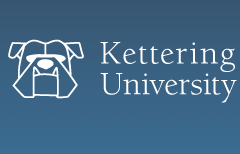Document Type
Conference Proceeding
Publication Date
6-26-2016
Publication Title
ASEE Annual Conference and Exposition
Conference Name
2016 ASEE Annual Conference & Exposition
Abstract
Instilling entrepreneurial mindset among engineering students is one of the challenges in engineering education. This paper presents the efforts to improve a core undergraduate industrial engineering course, Designing Value in Supply Chain, to infuse entrepreneurial thinking among students using an internally funded grant by Kern Entrepreneurial Engineering Network (KEEN). For this purpose, three new course modules are designed and their effectiveness on student learning is evaluated. This course is ideal for establishing entrepreneurially minded learning (EML) as a systematic approach is required for managing the chain of supply, especially since the impacts of the decisions are not isolated and will be spread out through the entire chain. In addition, creative multidisciplinary knowledge is required to address most of the supply chain challenges. The proposed modules are expected to promote students’ creative thinking, curiosity, collaboration and communication skills, and enable them to identify the opportunities where they can apply their technical skills to create value in the community based on customers’ expectations. These factors are key pillars of EML as proposed by KEEN. In the first course module, students propose a new product to be released to the market (idea generation). They complete this module as the product moves toward the end user in the supply chain following the concepts they learn during the term. This module enables the students to observe the domino impact of the decisions they make in the initial stages of supply chain and enhances structured learning experience by linking different concepts. In the second module, in order to expose the students to real life applications of the course content, wireless consumption data provided by students is used to practice different demand forecasting methods. Students also need to provide some economic analysis to choose the best solution alternative regarding their forecasted values. This module makes the learning process more meaningful as the learners observe a real life application of the subject. In the third module, students practice energy management in order to minimize energy waste as one of the most important types of waste in lean production systems. In this module, they are expected to determine several sources of energy waste on campus and propose action plans, and estimate the economic impact of their solution. As a result of this project, students learn how to create value and communicate an engineering solution in terms of economic benefits. Students provide a report for each module which is graded based on designed rubrics. All these modules are performed in teams which in turn improves students’ team work and collaboration skills. This paper elaborates the details of each module and learning outcomes, and presents the student evaluation results, and at the end discusses the lessons learned.
Rights Statement
© 2016 American Society for Engineering Education. Posted with permission.
Recommended Citation
Nezami, Farnaz Ghazi; Tavakoli, Massoud; and Torfeh, Mohammad, "Developing Entrepreneurial Mindset in Industrial Engineering Classes: A Case Study" (2016). Industrial & Manufacturing Engineering Presentations And Conference Materials. 11.
https://digitalcommons.kettering.edu/industrialmanuf_eng_conference/11


Comments
Presented at Entrepreneurship & Engineering Innovation Division Technical Session 8